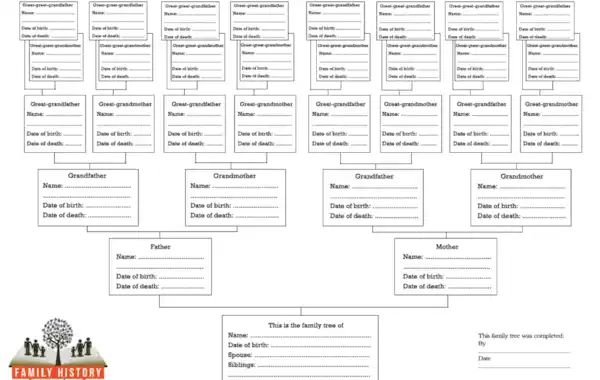Want to get the most out of your family history chart? Read these simple steps and advice on helping you use them.
With family history research you'll soon find you've gathered quite a number of names, dates and places. To keep your research on track, using family tree charts are one of the best ways to map out your discoveries.
1. Working notes
When you're on the ancestor-hunting trail it's easy to get in a tangle with the new-found details you uncover. You can use our printable charts as rough working documents, filling them in and sketching out the details as you find them.
2. Draw up a neat copy
You can also fill out a neat copy once you're sure of your findings, and file it away for future reference. If you have a break in your research this will make it easy for you to pick up where you left off last time - and so not waste a moment of precious research time!
3. Food for thought
Setting out your discoveries clearly is a really useful way of seeing what you have found out - and also for highlighting the gaps in your knowledge - ie the things you need to track down next.
Family tree charts are useful for family history researchers of all levels - whether you're just starting, or whether you're a seasoned genealogist. In today's world, apps and devices are invaluable for the modern ancestor-hunter, but there are, to be sure, certainly plenty of times when nothing quite beats an old school piece of paper and a pencil!







